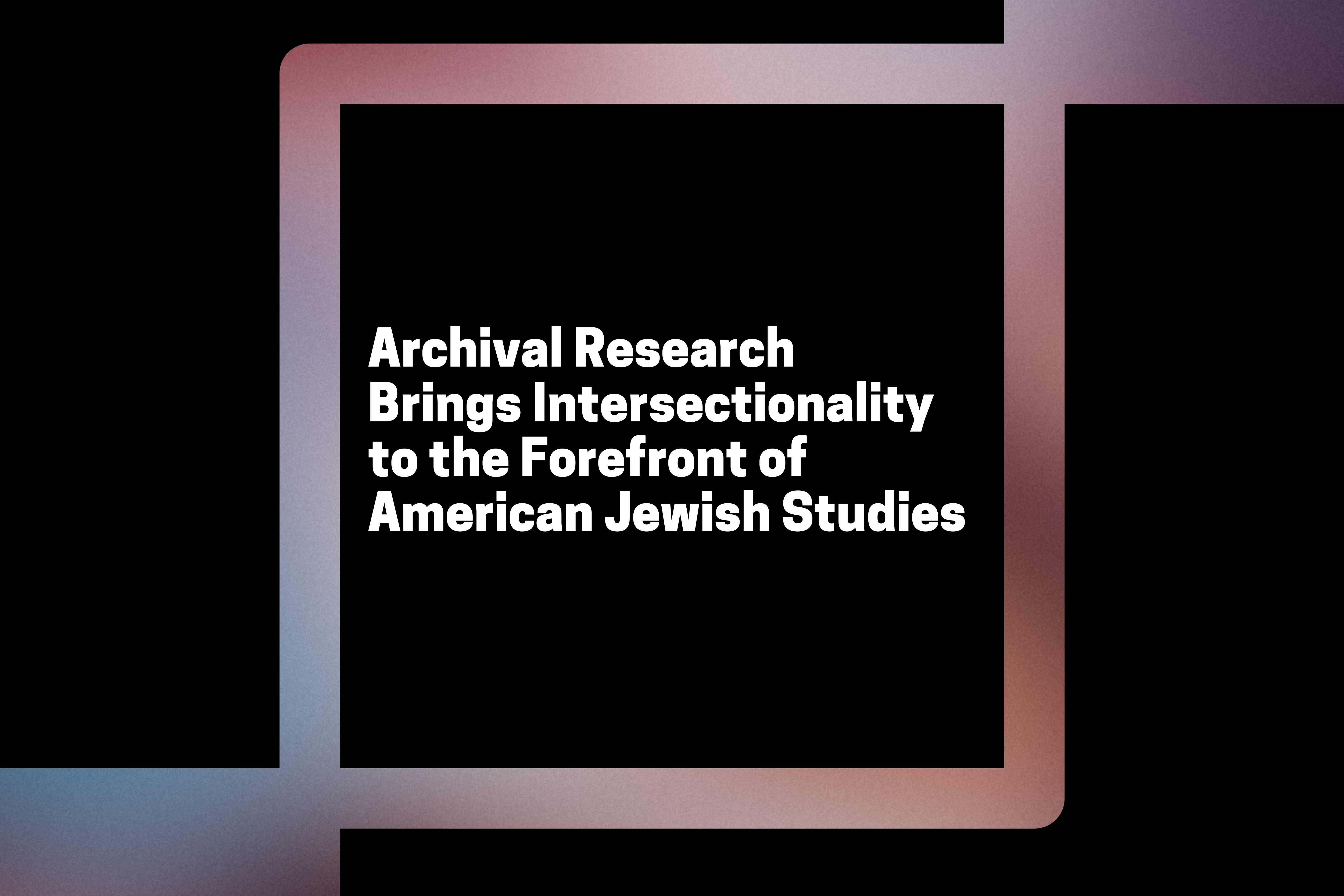
In Summer of 2022, Lingxuan Liang began digging into archives to investigate the history of American Jews adopting Asian children. Liang is a graduate student at Brandeis University where she studies American Jewish history. Her intersectional identity as a Jew of Color informs her research as she unearths forgotten histories and new narratives at the intersection of race and religion.
When Liang began meeting other Jewish Asian adoptees in Asian communities and gatherings, she recognized a pattern that many—though certainly not all—Asian Jews come to their Jewishness through adoption by white, Ashkenazim in the U.S. She also noticed that this trend was somewhat of a taboo. “Somehow the Jewish community just doesn’t talk about it,” she said. “Besides historical facts, this research is mostly about questioning how certain phenomena today become a widespread practice in the first place, either due to systemic barriers, personal choice, or changing social circumstances.”
Like many good historians, Liang’s curiosity took her to the archives. “When I don’t know where to start, I turn towards historical evidence,” she explained. Doing so led Liang to piece together unexpected histories of why this pattern is so prevalent.
“When I went to the archives, I had an agenda. I was focusing on the adoption of Asian children,” said Liang. She began her research by reviewing adoption records to map out the increase of requests from American Jews who wanted to adopt, as well as questions and concerns they posed to adoption agencies, which included specifications they had about the children they wanted. “But what I found,” she emphasized, “was a legal system that prevented Jewish Americans from adopting white children.”
This legal system, which saw its heyday in the 1940s, is known as the religious matching system. Religious matching required that adoptees be placed in families of their same religion, and Liang explained that this system was most diligently upheld for white Christian children, whom the system prioritized. As such, American Jews were barred from adopting white Christian children, which ultimately shaped adoption patterns among the Jewish community.
As Liang dug deeper into her research, she found that religious matching persisted well beyond the 1940s, and was prevalent through the 50s, 60s, and into the 70s. In fact, as recently as January 2022, a Jewish couple in Tennessee was denied adoption by a state-funded adoption agency because they are Jewish. Liang found that today there are still laws written, such as in estate family laws, that mandate religious matching.
As American Jews attempted to evade the antisemitic system that was preventing their family-building through the 1950s and 60s, they also sometimes participated in unethical and illegal activities, including human trafficking. Uncovering this information added a new dimension to Liang’s analysis: Jewish people seeking to adopt were simultaneously facing discrimination by a structure that favored white Christians, and perpetuating a toxic system through the illicit means by which some adopted.
“I understood why the [Jewish] community didn’t talk much about this history, because a history involving human trafficking is not something to be proud of,” Liang said. She also explained that other taboos in the Jewish community, such as converting children to Judaism and rates of infertility among the Jewish population, pushed this history even farther into the shadows.
While research that uncovers complex histories within the American Jewish community can be challenging to document, Liang is determined to “write a more balanced work” that accounts for the traumas and histories of Ashkenazi Jewish Americans and Jews of Color. “I want to sort through all of these narratives to have a more balanced view on this issue of adoption, respecting all the traumas from all parts of the community.”
“The most exciting part of this research is tracing a hidden history to see if it was forgotten by the community on purpose or just forgotten without reason,” Liang said. “And I got the answer. But does that make me feel good? No,” she asserted. “It’s the burden of history, I’ll say.”
Liang’s research has led her to reflect on other dynamics relating to Asian Jewish adoptees in the U.S., such as the experience of feeling ostracized by the mainstream Jewish community. Through her archival work, she developed a curiosity for contemporary racialized dynamics, and is conducting qualitative interviews to inform her study.
“Because adoptees in the Jewish community grew up in mostly racially homogeneous environments and were so marginalized by the mainstream Jewish community, most of us never got a chance to connect with other Jews of Color until very recently—during the pandemic.”
In pursuing her research, Liang also gained a bird’s-eye view of the field that studies Jewish community and Jewish identity. “We need to focus on intersectionality because that’s how Jews of Color exist in this community,” she proclaimed, arguing that “we need more diverse voices from different fields” to contribute to examining contemporary Jewish identities. “Intersectionality might be at the forefront of American Jewish studies.”
Liang believes that “amplifying JoC voices is vital for the American Jewish community.” “If consciousness regarding diversity is absent in your Jewish community, be the voice of strength, empathy, and education. I encourage more adoptees to bravely take up space in the community and be unapologetic about their existence.”
References
Balcom, Karen Andrea. The Traffic in Babies: Cross-Border Adoption and Baby-Selling Between the United States and Canada, 1930-1972. Toronto: University of Toronto Press, 2011.
Greene, Naomi. “A Tale of the Cold War: Jews, Catholics, and Black Market Babies.” Modern
Judaism 38, no. 2 (2018): 131–159.
Segal, Adam Elliot. “Black Market Babies,” Maisonneuve, July 18, 2017. https://maisonneuve.org/article/2017/07/18/black-market-babies/.
Van Steen, Gonda Aline Hector. Adoption, Memory, and Cold War Greece: Kid Pro Quo? Ann
Arbor: University of Michigan Press, 2019.


